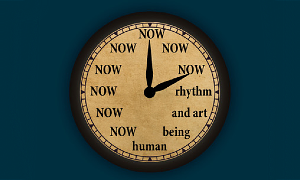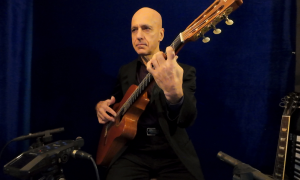Pollack, who also was a producer and actor, died of cancer at his home in Pacific Palisades, according to Leslee Dart, his publicist and friend.
As a filmmaker, Pollack had a reputation for being a painstaking craftsman -- “relentless and meticulous," screenwriter and friend Robert Towne once said.
“His films have a lyrical quality like great music, and the timing is impeccable," cinematographer Owen Roizman, who shot five films directed by Pollack, including “Tootsie" and “Havana," said when it was announced that Pollack would receive the 2006 American Society of Cinematographers Board of Governors Award for his contributions to filmmaking.
“He is never satisfied. . . . His passion is contagious. It inspires everyone around him to dig a little deeper," Roizman said.
George Clooney, who starred with Pollack in “Michael Clayton," said: “Sydney made the world a little better, movies a little better and even dinner a little better. A tip of the hat to a class act. He'll be missed terribly."
Beginning with “The Slender Thread," a 1965 drama starring Sidney Poitier and Anne Bancroft, Pollack was credited with directing 20 films, including “They Shoot Horses, Don't They?," a 1969 drama about Depression-era marathon dancers starring Jane Fonda that earned Pollack an Oscar nomination for best director.
Known for what New York Times film critic Janet Maslin once described as “his broadly commercial instincts and penchant for all-star casts," Pollack directed seven movies starring Robert Redford, beginning with “This Property Is Condemned" (with Natalie Wood) in 1966.
The Pollack-Redford collaboration also produced “The Way We Were" (with Barbra Streisand), “Jeremiah Johnson," “Three Days of the Condor" (with Faye Dunaway), “The Electric Horseman" (with Fonda), “Out of Africa" (with Meryl Streep) and “Havana" (with Lena Olin).
“Sydney Pollack has made some of the most influential and best-remembered films of the last three decades," film scholar Jeanine Basinger told The Times.
In looking at Pollack's films, she said that “what you see is how he kept in step with the times. He doesn't get locked into one decade and left there. He had a very sharp political sensibility and a keen sense of what the issues of his world were, and he advanced and changed as the times advanced and changed."
Film critic and historian Leonard Maltin said “the hallmark" of Pollack's career “has been intelligence, both in his approach and his selection of subject matter."
“Good, bad or in between, his films at the very least respected their audience," Maltin told The Times. “And, of course, he worked with grade-A collaborators on both sides of the camera -- the best screenwriters, the best actors -- and it shows."
“Out of Africa," the 1985 drama based on Danish author Isak Dinesen's experiences in Kenya during the early 20th century and her romance with English big-game hunter-adventurer Denys Finch Hatton, earned Pollack two Academy Awards: as director and as producer of the film, which won the best picture Oscar.
Pollack also received a best director Oscar nomination -- and a New York Film Critics Circle Award -- for “Tootsie." In the 1982 comedy, Dustin Hoffman stars as Michael Dorsey, an unemployed New York actor who revives his career by transforming himself into a “woman" -- actress Dorothy Michaels -- who lands a role in a TV soap opera and then finds himself falling in love with an actress on the show, played by Jessica Lange. In the process of masquerading as a woman, Dorsey becomes a better man.
The making of the film was marked by creative tension between Pollack and Hoffman -- and unexpected difficulties.
“It's like working with the mechanical shark in 'Jaws,' “ Pollack told the New York Times in 1982. “Dustin's breasts fall down. The high heels hurt his feet. The makeup causes pimples, and the heat makes his beard show through after a couple of hours. It's a 3 1/2 -hour makeup job, and then the makeup only has a life of four or five hours. We didn't anticipate that."
Pollack spoke of his preference for working with big stars in an interview with the New York Times in 1982.
“Stars are like thoroughbreds," he said. “Yes, it's a little more dangerous with them. They are more temperamental. You have to be careful because you can be thrown. But when they do what they do best -- whatever it is that's made them a star -- it's really exciting."
Sidney Pollack His Life & Times
Sydney Pollack, the Academy Award-winning director of “Out of Africa" who achieved acclaim making popular, mainstream movies with A-list stars, including “The Way We Were" and “Tootsie," died Monday. He was 73.



























